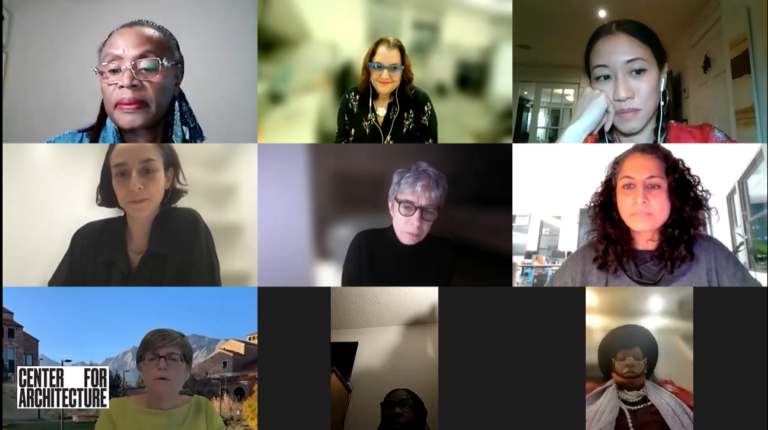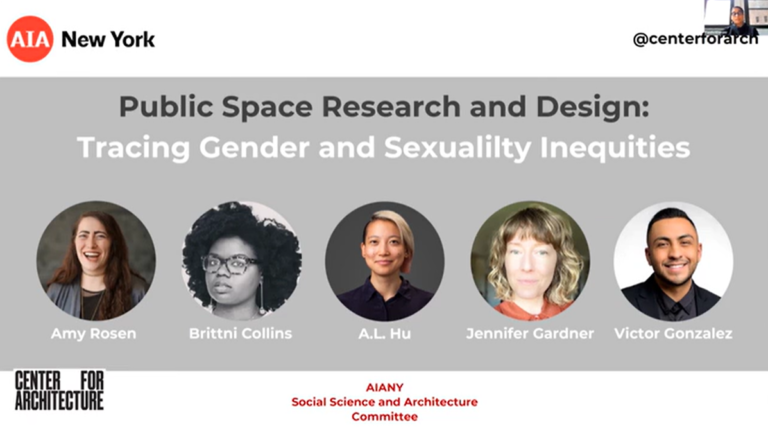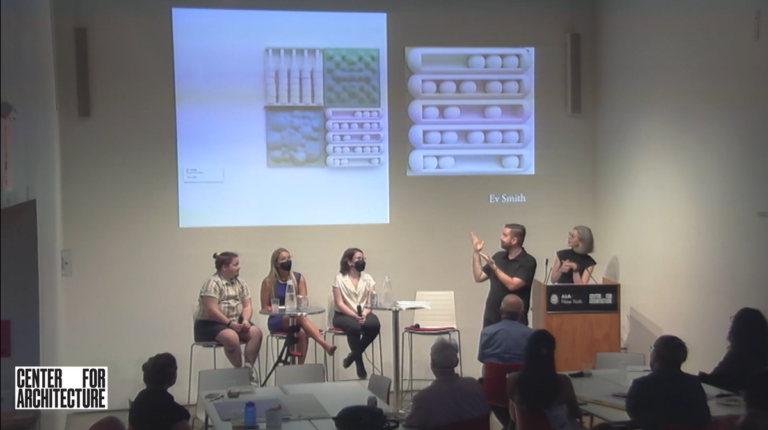As we all witness the effects of climate change on our cities, it is impossible to ignore how environmental issues perpetuate long-standing social injustice and inequality. Disproportionate tree canopies, long-neglected infrastructural repairs, lack of investment, and increased police presence in public greens spaces located in lower income neighborhoods perpetuate social, economic, and health inequities, as is shown through data sets such as heat maps and maps of green spaces in New York City.
As researchers and designers, we ask ourselves whether the existing data fully encompasses the experiences and needs of all NYC residents. What type of data is needed for foundational design shifts in the built environment at various scales? Who should be involved in data collection and analysis? This conversation will explore these topics and invite discussion around how data can be used to shift the design of public spaces, empowering communities, researchers, and designers to create more equitable, just, climate-resilient, and healthy space.
Speakers:
Ibrahim Abdul-matin, Co-founder, Green Squash Consulting; Board Member, International Living Future Institute; Board Member, Sapelo Square
Helen Cole, PhD, Co-coordinator for Urban Environment, Health and Equity, Barcelona Lab for Urban Environmental Justice and Sustainability (BCNUEJ), Institut de Ciència Ambiental i Tecnologia, Universitat Autònoma de Barcelona (ICTA-UAB)
Timon McPhearson, Director of the Urban Systems Lab and Professor of Urban Ecology, The New School; Research Fellow, Cary Instute of Ecosystem Studies, Stockholm Resilience Center, and the Beijer Institute for Ecological Economics at the Royal Swedish Academy of Science
Moderator:
Jessica Elliott, AIA, WELL AP, SEED AP, Associate Architect, Hart Howerton NYC


